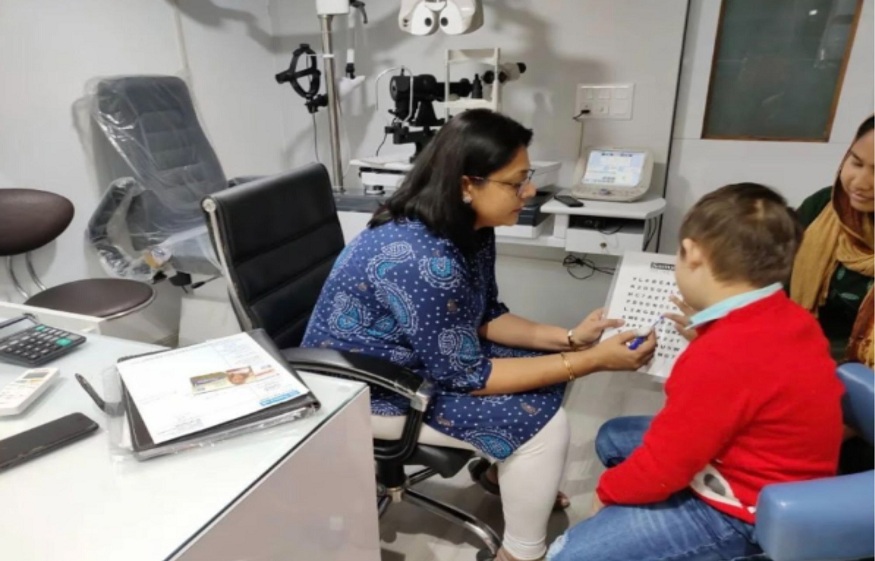
xr:d:DAF6ll9L5V0:7,j:223344443661805771,t:24012206
Infertility can feel like a lonely journey. But with the right support, it doesn’t have to be. An inclusive approach is key to breaking down barriers in treatment. At University Reproductive Associates, the focus is on patient-centered care. This means understanding each person’s unique needs and ensuring everyone feels heard. Let’s explore how this approach helps patients reach their dreams of starting a family.
The Need for Inclusive Treatment
Infertility affects many people, regardless of background, identity, or relationship status. It’s important to ensure that everyone has access to the care they need. Inclusive treatment recognizes the diverse paths to building a family. It also addresses the unique challenges faced by individuals and couples.
Traditional models of care often overlook these differences. Inclusive care, however, is proactive. It seeks out and removes barriers, whether they are financial, cultural, or systemic. This approach is essential in creating a supportive environment for all patients.
Components of Inclusive Care
What does inclusive treatment look like in practice? It starts with listening. Care providers take the time to understand the hopes and needs of each patient. They offer:
- Personalized treatment plans
- Flexible appointment scheduling
- Comprehensive support resources
By integrating these elements, specialists create a welcoming space. They also ensure that treatment is accessible, no matter the circumstances.
Success Rates and Patient Satisfaction
Inclusive care doesn’t just feel better—it delivers results. Studies show that when patients feel supported, outcomes improve. Here’s a quick look at how inclusive approaches impact success rates and satisfaction:
| Aspect | Traditional Care | Inclusive Care |
| Success Rates | Moderate | Higher |
| Patient Satisfaction | Average | High |
| Access to Resources | Limited | Comprehensive |
This data underscores the importance of treating the whole person, not just the condition. When patients receive care that respects their identities and choices, they are more likely to feel optimistic and engaged.
Real-World Examples
There are many examples of inclusive care making a difference. One study by the Centers for Disease Control and Prevention highlights the impact of patient-centered approaches. Clinics that offer culturally competent care see better adherence to treatment plans. They also report higher rates of patient follow-up.
Another resource, the National Institutes of Health, offers insights into how equity in healthcare benefits communities. Programs that focus on removing barriers often see improved health outcomes across the board.
The Role of Education and Advocacy
Education plays a crucial role in promoting inclusive care. By training healthcare providers to recognize and address biases, the field can move towards greater equity. Advocacy is also key. Patients and providers can work together to push for policies that support inclusive practices.
At University Reproductive Associates, ongoing education ensures that staff understand the latest developments in care. This commitment to learning helps create an environment where everyone feels valued.
Moving Forward
Breaking down barriers in infertility treatment requires effort and dedication. By embracing an inclusive approach, we can create a healthcare landscape that truly serves all. This means continued listening, learning, and adapting to meet the needs of diverse populations.
In the end, the goal is simple: to help everyone on their path to parenthood, with care that respects their journey. Through inclusive treatment, those dreams come within reach.

 Tennessee Men’s Clinic Discusses the Correlation of Healthy Relationships to Men’s Health
Tennessee Men’s Clinic Discusses the Correlation of Healthy Relationships to Men’s Health  Frequently Asked Questions About Speech Therapy Answered
Frequently Asked Questions About Speech Therapy Answered  The importance of choosing a good gynaecologist doctor for your health
The importance of choosing a good gynaecologist doctor for your health  Ophthalmologists’ Strategies For Managing Chronic Eye Diseases
Ophthalmologists’ Strategies For Managing Chronic Eye Diseases  The Role Of Cardiologists In Managing Chronic Heart Failure
The Role Of Cardiologists In Managing Chronic Heart Failure  Understanding Foot Biomechanics: A Podiatrist’s Perspective
Understanding Foot Biomechanics: A Podiatrist’s Perspective  Trek Nepal’s Four Great Regions: Annapurna, Langtang, Manaslu, and Nar Phu:
Trek Nepal’s Four Great Regions: Annapurna, Langtang, Manaslu, and Nar Phu:  The Ecosystem of Ease: How Bill Payments Evolved into a Digital Habit
The Ecosystem of Ease: How Bill Payments Evolved into a Digital Habit  How Insurance Apps Are Embedding Themselves Into India’s Daily Payment Flows
How Insurance Apps Are Embedding Themselves Into India’s Daily Payment Flows  A Guide to the Best Things to Do Near Villa Firenze Costa Rica
A Guide to the Best Things to Do Near Villa Firenze Costa Rica